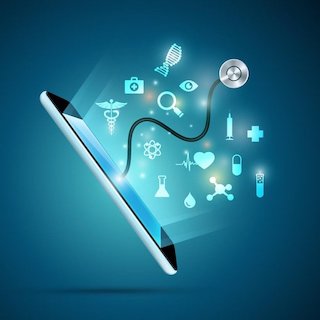
Healthcare and information technology are often spoken about as if they belong to separate worlds. One is about doctors, hospitals, and patients. The other is about servers, data, and networks. Yet in today’s world, the two cannot survive apart. From booking appointments to storing records and delivering results, technology is no longer optional; it is the backbone of modern healthcare.
In Nigeria, the separation between these two worlds is still stark. Patients continue to wait in long queues for records that could be accessed in seconds. Hospitals often rely on folders stacked high in cabinets, while doctors sometimes lack the information they need because files are misplaced or incomplete. At the same time, Nigeria has one of the fastest-growing technology sectors in Africa. Millions of people use mobile apps for banking, communication, and shopping. But in healthcare, the use of IT remains limited.
The gap is visible in the daily experiences of ordinary Nigerians. A man in Kano managing hypertension may visit three different facilities, each with its own file, none connected to the other. A mother in Port Harcourt may repeat laboratory tests simply because previous results are not available. A student in Lagos may present a paper report that employers or schools doubt, because there is no easy way to verify it. These are not problems of medicine but of systems, and systems are the domain of information technology.
Globally, the connection between IT and health is not new. In the United States, electronic health records are the standard. In India, mobile platforms allow patients to access prescriptions and test results instantly. In Rwanda and Kenya, technology is used to notify patients about results or to support community health workers in the field. These examples show that when IT is integrated into healthcare, patients benefit, providers save time, and governments gain reliable data for planning.
Nigeria has begun to experiment with electronic systems in some hospitals and private clinics. But the adoption remains scattered and uneven. In many cases, systems work in isolation. Records do not travel with the patient. Labs and hospitals often operate separately. Patients themselves rarely have access beyond the paper they are given. The result is duplication, waste, and frustration.
The question is not whether technology belongs in healthcare—it does—but how Nigeria will bridge the gap. The banking sector provides a useful lesson. Two decades ago, banks operated with paper ledgers and long delays. Today, customers check balances and transfer money in seconds using their phones. This leap did not happen because of banking reforms alone; it happened because IT became central to financial services. Healthcare requires the same urgency.
Bridging IT and health is not only about efficiency. It is also about trust. In a system that depends on paper, records can be forged or altered, creating room for doubt. Technology can strengthen credibility by ensuring that records are secure, verifiable, and consistent. Patients deserve confidence that their health information will not disappear with a misplaced folder or be questioned when presented for school, work, or travel.
Of course, challenges exist. Power supply, connectivity, and the cost of infrastructure cannot be ignored. But these are the same barriers Nigeria has overcome in other sectors. The spread of mobile banking, the growth of e-commerce, and the rise of digital payments all prove that where there is demand and commitment, solutions follow. Healthcare should not remain the last frontier of outdated processes.
IT professionals have a role to play here. Doctors and nurses are experts in treatment, but technology requires its own expertise. The bridge between these two worlds must be built by collaboration: health professionals defining needs, and IT experts designing systems that make those needs possible. Neither side can succeed alone.
Patients also have a role. Just as Nigerians embraced mobile banking and messaging apps, they will adapt to new ways of accessing health information. In fact, demand often drives change faster than policy. When people expect faster, safer, and more reliable access, providers will be pressured to respond.
Nigeria has transformed before. The introduction of the Bank Verification Number reshaped financial services. The arrival of mobile telephony opened communication to millions. A similar transformation is possible in healthcare if IT is placed at the centre rather than the sidelines.
Healthcare is not just about hospitals. It is about information that is accurate, timely, and available when needed. Without technology, information is lost, delayed, or doubted. With technology, it becomes a foundation for better treatment, better planning, and better outcomes.
Bridging IT and healthcare is no longer a choice; it is a necessity. The health of Nigerians depends on it.
Ayeni, an IT consultant and founder of Digital Health Systems Ltd, writes via ola.ayeni@mylabscope.com
Provided by SyndiGate Media Inc. (Syndigate.info).
Post a Comment